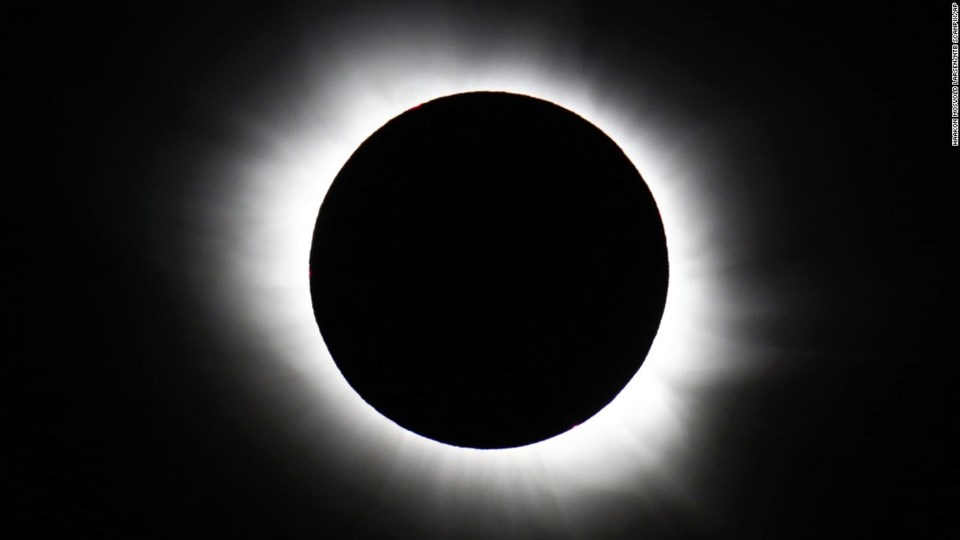About once every year and half, somewhere in the world, there's a solar eclipse, in which the sun is obscured by the moon.
What is less common is being able to see it in this part of the world. On Monday, assuming the weather holds up, Sudburians will get to see about 70 per cent of a solar eclipse.
Lucie Robillard, science communicator for the planetarium at Science North, said Monday's event will last about two and a half hours.
"It starts at 1:06 p.m. and will go until 3:41 p.m.," Robillard said. "The peak time will be at 2:25 p.m."
Because the sun is a lot less bright, she said there's a temptation to stare at the eclipse, but doing so risks serious eye damage.
"It is pretty dangerous to look at the sun because the light is pretty intense for our eyes,” Robillard said. "Looking at an eclipse can lull you into a false sense that hey, it's not super bright.
"But it can cause what's called solar retinopathy -- some people call it eclipse blindness — where you see the image leftover on your eye. The image can last days, months or it could always be there. But there are some safe ways to look at the sun."
There are ISO approved solar eclipse glasses available online, although with the eclipse just days away, those are getting harder to find. Welder's goggle shade 14 and up are also OK, Robillard said.
There's a viewing party scheduled at the entrance of Science North on Monday, where the centre will have a few options for people to watch.
"We have some solar telescopes — telescopes with proper solar filters on them that blocks most of the sunlight,” she said. “We do have some solar eclipse glasses and welding goggles, too, for people to use."
And at around 5 p.m., in the Discovery Theatre, people with tickets to the centre will be able to watch a streamed recording of the entire eclipse.
If you miss Monday's event, or it's too cloudy to see anything, the next solar eclipse visible in North America happens in April 2024.
"That one is actually going right through southern Ontario, so we'll see a nearly total eclipse in Sudbury," Robillard said.
For more information on Science North's eclipse viewing party, go to sciencenorth.ca.
